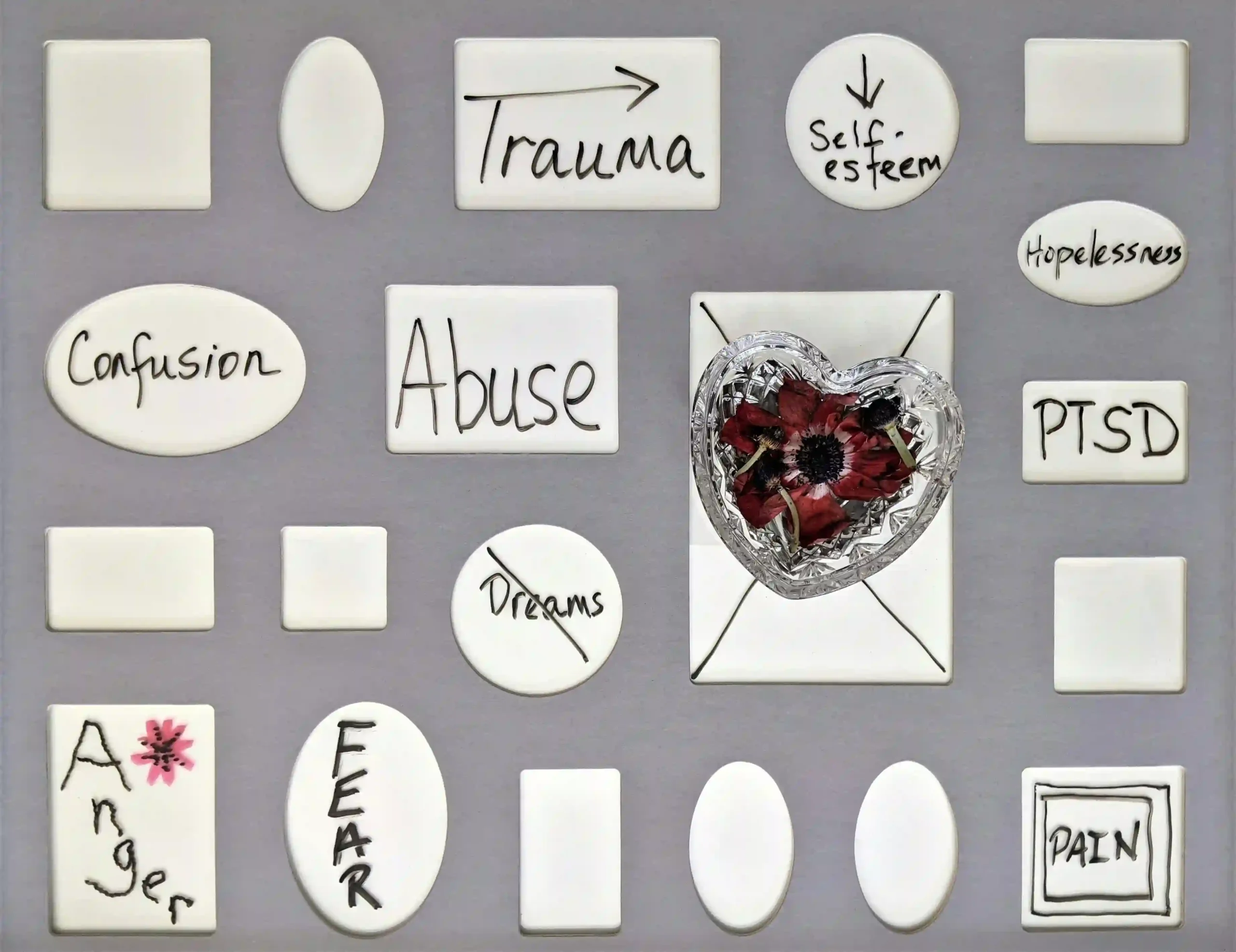When your brain is always afraid and finds it hard to trust, it can be challenging to feel comfortable around people. Living with Complex PTSD can cause strong emotional flashbacks, making it hard to control your feelings. This can lead to deep sadness, thoughts about self-harm, or trouble managing anger.
What Is Complex PTSD?
Complex PTSD happens when someone goes through terrible experiences and can’t make sense of them. It is linked to many traumatic events that occur over an extended period in someone’s life.
Complex PTSD vs. PTSD
PTSD, or Post-Traumatic Stress Disorder, is common among people who have been through war, abuse, violence, natural disasters, or the death of someone close. We often see it in movies and TV shows about soldiers or trauma survivors. Complex PTSD (C-PTSD) is slightly different and is often seen in children.
Both PTSD and C-PTSD come from traumatic experiences and can cause symptoms like flashbacks, bad dreams, and trouble sleeping. However, Complex PTSD can change how a person sees the world in a big way.
PTSD usually comes from one traumatic event that happens over a short time. Complex PTSD develops from severe, repeated trauma over a long time. While PTSD has been recognized for a while, C-PTSD is not yet officially a separate disorder, but many mental health professionals are starting to see it as different.
Symptoms of Complex PTSD
Someone with Complex PTSD may have all the usual PTSD symptoms and more. They might struggle with feelings of shame or guilt, trouble controlling their emotions, and problems with relationships.
What Are the 17 Symptoms of Complex PTSD?
Complex PTSD can cause many different symptoms. Here are 17 common ones:
- Flashbacks: Reliving the traumatic events in your mind.
- Nightmares: Having bad dreams about the trauma.
- Avoidance: Staying away from places or people that remind you of the trauma.
- Trouble Sleeping: Finding it hard to fall or stay asleep.
- Anger Outbursts: Getting angry easily or having sudden mood swings.
- Feeling On Edge: Always being alert or jumpy.
- Difficulty Trusting Others: Finding it hard to trust people, even those close to you.
- Negative Thoughts About Yourself: Feeling guilty, ashamed, or worthless.
- Loss of Interest: Not enjoying activities you used to like.
- Emotional Numbness: Feeling detached or unable to feel emotions.
- Memory Problems: Having trouble remembering parts of the traumatic events.
- Physical Symptoms: Experiencing headaches, stomachaches, or other body pains.
- Feeling Different: Believing you are not like other people.
- Relationship Problems: Having trouble getting along with friends or family.
- Self-Harm: Hurting yourself on purpose.
- Substance Abuse: Using alcohol or drugs to cope with feelings.
- Hopelessness: Feeling like things will never get better or thinking about suicide.
If you or someone you know is experiencing these symptoms, it’s important to talk to a trusted mental health professional for help.
What Happens If You Leave Complex PTSD Untreated?
If Complex PTSD isn’t treated, it can become very serious. It may lead to anxiety, depression, addiction, self-harm, and thoughts about suicide. Physical problems like constant pain, tiredness, and changes in eating and sleeping can also happen.
People with Complex PTSD might hide their pain for a while. But as life gets more stressful, their hidden pain can suddenly come out. That’s why it’s so important to have a treatment plan to help with the healing process.
Complex PTSD Life Expectancy
Complex PTSD can have a significant impact on a person’s life, but it doesn’t mean that someone can’t live a long and fulfilling life. With the right treatment and support, many people with Complex PTSD can manage their symptoms and improve their overall well-being.
It’s important to seek help from mental health professionals who understand Complex PTSD. They can offer therapy and coping strategies to deal with the challenges. Taking care of your mental health can also positively affect your physical health.
Without proper treatment, Complex PTSD may lead to serious health issues, both mentally and physically. This is why getting help and following a treatment plan is so important.
Does Complex PTSD Ever Go Away?
Even though Complex PTSD can be hard to overcome, it can be treated. With the help of a caring and compassionate professional, someone can face their triggers and start to change how they experience them. Healing takes time, patience, trust, empowerment, and long-term support.
With adequate support and guidance, a person can reduce the power of their trauma and learn positive ways to cope. Treatment centers for Complex PTSD offer safe places for therapy and learning life skills.
About 6% of people in the United States will have PTSD at some point. Symptoms might be caused by changes in parts of the brain that handle emotions, memories, and thinking. Areas like the amygdala, hippocampus, and prefrontal cortex might be affected.
Complex PTSD Treatment at Arcara Psychiatry
Complex PTSD is a serious mental health condition that can take a long time to heal, and for many, it may be a lifelong challenge. However, with therapy and medication provided by our team of psychiatrists and mental healthcare professionals in Boston, Arcara Psychiatry can significantly improve your quality of life and help you manage your symptoms.






